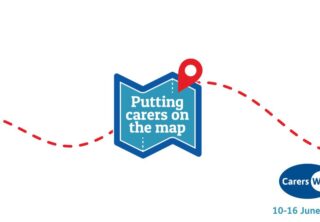Developing outcomes focused home care in the Isle of Wight
In 2018, the Isle of Wight Council asked us to work alongside them, and in partnership with the local domiciliary care market, to begin to make the transition to an outcome focused home care service model
-
Situation and task
-
What was the impact?
-
Key success factors
-
Situation and task
-
Situation and task
Over a 12 month period, we developed a ‘test and learn’ programme with a number of providers, the aim being to deliver an outcome focused specification for home care. This would lay the foundations for a formal procurement process. This ‘test and learn’ approach comprised two key stages:
- Firstly, IPC designed and facilitated a series of engagement activities to build a picture of providers’ readiness for change to outcomes-based working and to establish consensus around the term 'outcomes', and how these could be achieved and evidenced.
- We then adopted a 'test and learn' shadow approach to outcome-based commissioning and delivery; chaired by the Institute, commissioners, providers, carers and operational staff across health and social care regularly reflected together on the effectiveness of, and learning from, the new approaches being taken.
We continue to provide an impartial view and expertise by supporting the introduction of their new arrangements.
-
What was the impact?
-
What was the impact?
The work produced a number of valuable outputs to consolidate the move away from a ‘time and task’ service to focus on outcomes for vulnerable people who receive home care. This includes shared design principles for effective outcome-based commissioning and service delivery, a draft outcomes-focused home care specification and performance management framework. In addition, an established ‘test and learn’ methodology and governance arrangements will pave the way for wider projects undertaken by the Council.
“It gave us a chance to try out something completely new with very little risk. It was the best thing we could have done. It has helped us shape the market and make a fundamental change in our ways of doing things. The market now is very engaged.”
Laura Gaudion, Assistant Director – Commissioning and Partnership and Head of Continuing Healthcare, Adult Social Care, Isle of Wight Council
-
Key success factors
-
Key success factors
Critical to the success of this service transition has been the development of an effective and trusted partnership between the Council and local providers.
Whilst the Council was clear from the start in terms of what it wanted to achieve with our support, it is providers’ meaningful engagement and opportunities to take ownership of the entire process that will ultimately lead to real change being achieved and sustained for people receiving home care.
Finally, strong leadership, both internally and from an independent organisation such as the Institute of Public Care, has helped to break some of the historical mistrust and to build new trusted relationships.

Contact Philip Provenzano to discuss this case study
Related News

Carers Week 10th-16th June
10/06/2024
Carers Week from 10-16 June 2024 will focus on ‘Putting Carers on the Map.’ The campaign gives an opportunity to raise the profile of carers
Related Services

Consultancy
Our consultancy services are tailored to address the unique challenges faced by our clients. From problem-solving and enhancing current practices to fostering innovation, we offer expert guidance.
Related Case Studies

Joint evaluation of the Dorset children's locality model, Children Thrive

Nottingham and Nottinghamshire Integrated Care System Supporting Collaborative Commissioning. A Learning Laboratory Approach




